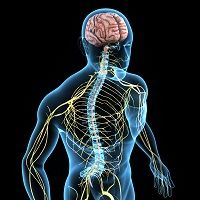Impaired Cytokines Prohibits Multiple Sclerosis Development
Study results indicate the protein regulator Trabid may be a promising target for developing novel treatments for patients with multiple sclerosis.

A protein regulator called Trabid may unlock future multiple sclerosis (MS) treatments, according to findings published in Nature Immunology.
Researchers from the University of Texas MD Anderson Cancer Center determined that Trabid — protein regulator used to autoimmune inflammation in the central nervous system in MS – is a factor in managing the cytokine genes and the immune cell response.
“Our findings highlight an epigenetic mechanism for the regulation of the cytokine genes, interleukin 12 (IL 12) and interleukin 23 (IL 23), and established Trabid as an immunological regulator of inflammatory T cell responses,” Shao-Cong Sun, PhD, professor of Immunology, explained in a press release. “Trabid appeared to regulate histone modifications by controlling the fate of a histone demethylase called Jmjd2d.”
The researchers explained that cytokines are the small proteins which indicate cell signaling. They added that IL 12 and IL 23 part of the mediation system of inflammation in connection with inflammatory diseases. Sun said that Trabid and Jmjd2d are potentially future therapeutic targets for inflammatory diseases such as MS.
“Since chronic inflammation is a major risk of cancer, future studies will examine whether Trabid and Jmjd2d also have a role in cancer development,” said Sun.
The pro inflammatory cytokines such as IL 12 and IL 23 play a role in arbitrating the innate responses and immune responses, while also being involved in autoimmune and inflammatory diseases, the researchers continued. The press release noted that the innate immune system, also called the nonspecific immune system, is an important subsystem of the overall, larger immune system picture that makes up the cells and mechanisms that defend the host from infection by other organisms.
“Cells of the innate immune system including dendritic cells and macrophages, have an important role in regulating the nature and magnitude of adaptive immune responses,” said Sun. “They recognize microbial components including various receptors that trigger intracellular signaling events that impact the function of those cells. Deregulated production of pro inflammatory cytokines by cells of the innate immune system also contributes to autoimmune and inflammatory diseases.”
The investigators also found that by deleting Trabid’s encoder gene, called Zranb1, in dendritic cells inhibited the expression in IL 12 and IL 23. When the cytokines were inhibited, the differentiation of inflammatory cells was impaired. This process protected the mice models of MS used in the study from autoimmune inflammation.